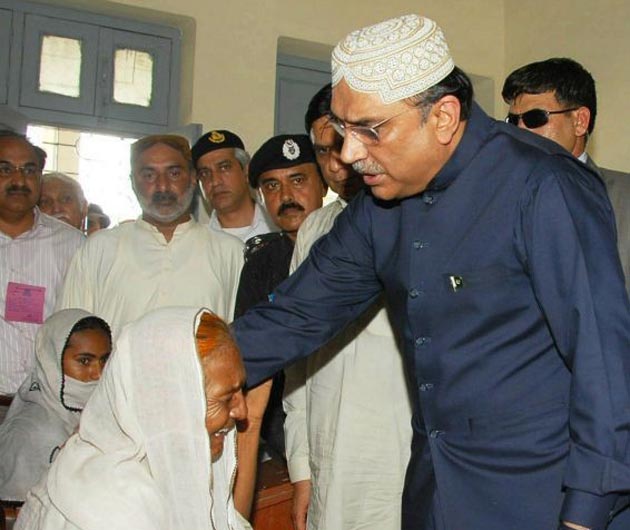Poor response to Pakistan aid appeals frustrates charities

Your support helps us to tell the story
From reproductive rights to climate change to Big Tech, The Independent is on the ground when the story is developing. Whether it's investigating the financials of Elon Musk's pro-Trump PAC or producing our latest documentary, 'The A Word', which shines a light on the American women fighting for reproductive rights, we know how important it is to parse out the facts from the messaging.
At such a critical moment in US history, we need reporters on the ground. Your donation allows us to keep sending journalists to speak to both sides of the story.
The Independent is trusted by Americans across the entire political spectrum. And unlike many other quality news outlets, we choose not to lock Americans out of our reporting and analysis with paywalls. We believe quality journalism should be available to everyone, paid for by those who can afford it.
Your support makes all the difference.Leading charities have attacked the international response to the worst natural disaster in Pakistan's history, saying delays in funding the relief effort had affected aid operations.
With 1,600 people dead after two weeks of flooding and nearly 14 million people affected, 6 million of them children at risk of malnutrition, pneumonia and diarrhoea, the UN warned that many more could die unless nations step up their relief contributions. The floods, triggered by monsoon downpours, have swamped Pakistan's Indus river basin, forcing two million from their homes and directly disrupting the livelihoods of 8 per cent of the population.
Analysis of previous emergency aid appeals has showed that contributions from governments and international donors are well down compared to other major disasters. International donors committed $45m (£29m) – amounting to $3.20 per person affected – to tackling the crisis in the first 10 days, compared to $742m ($495 per person) after the Haiti earthquake, according to an examination of UN figures by Oxfam.
"It's perplexing why the international community has been so slow on this," said the Oxfam spokesman Ian Bray. "I think they took their eye off the ball and didn't realise how big it was and didn't act quickly enough."
The response picked up yesterday with $90m raised in a day since the UN said it was appealing for $460m. That appeal followed earlier pledges of $150m, led by the US and Britain. Britain has earmarked £31m for the UN appeal. The UN said "more was needed because of the unprecedented scale of the emergency".
It was suggested last night that charity-giving may have been affected by David Cameron's accusation that Pakistan is an exporter of terrorism, and negative publicity over President Asif Ali Zardari's failure to return from his European trip to oversee rescue efforts at home. "Pakistan has suffered because of what Mr Cameron has said, because the British people will listen to their Prime Minister," Pakistan's permanent representative to the UN, Abdullah Hussain Haroon, told BBC Radio 4.
Charities said that they were happy at how Britons had responded to the UK appeal. However, the £10.5m raised so far by the Disasters Emergency Committee – the joint appeal by British charities – was well below sums raised for other huge natural disasters such as Haiti and the Boxing Day tsunami. In the first week, the Pakistan appeal raised about £7.5m, compared with about £100m for the tsunami, £38m for the Haiti quake, and £15m for the 2005 South Asia earthquake in Kashmir, which affected India as well as Pakistan.
"I would have expected it to be higher," said John Baguley, chief executive of the International Fundraising Consultancy, which advises charities. "It's more to do with disasters happening with increasing frequency. People gave very generously to the Pakistan earthquake, then for the tsunami and relief in Haiti. There is an element of donor fatigue that may be playing a part."
Mr Zardari made his first visit to victims of the disaster yesterday on a closely controlled trip to one of the areas worst affected by the flooding. The government has been sharply criticised for its relief efforts, with the military taking a lead, highlighting the ineffectiveness of some government efforts.
Yousaf Raza Gilani, the Prime Minister, who yesterday flew over flooded areas, also called for more assistance, while acknowledging that the scale of the disaster was much worse than his government had initially thought. "All I say is that we need more help from our international friends," he told the Associated Press. "We need more helicopters because the magnitude of the destruction was far more" than earlier government assessments.
The poor donor response has hampered the work of Save the Children, according to its spokesman in Pakistan. "This flood is unprecedented but so has the donor response – unprecedentedly poor," said Mohammed Qazilbash. "Organisations are in desperate need of assistance to help millions. Where we could have sent 20 supply trucks, we've only been able to send six."
A US ship carrying 1,000 marines and helicopters arrived off the coast near Karachi yesterday to help rescue stranded people and deliver food and other supplies.
Nearly a quarter of the land area of Pakistan has been affected. More rain fell yesterday, with monsoons forecast to last several more weeks. Dams in Sindh province remain at risk of bursting. John Holmes, who co-ordinates emergency relief for the UN, said: "The death toll has so far been relatively low compared to other major natural disasters, but the numbers affected are extraordinarily high. If we don't act fast enough, many more people could die of diseases and food shortages".
Join our commenting forum
Join thought-provoking conversations, follow other Independent readers and see their replies
Comments